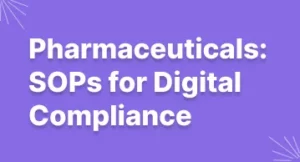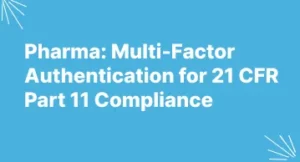What is the Therapeutic Goods Administration (TGA)?
The Therapeutic Goods Administration (TGA) is the Australian Government agency responsible for regulating therapeutic goods including medicines, medical devices, and other products. It is part of the Australian Department of Health and was established in 1990. The TGA’s job is to protect the health and safety of Australians by ensuring that all medicines and medical devices available for sale in Australia are of an acceptable standard.
The TGA also has responsibility for establishing awareness programs, providing consumer education and information about therapeutic good safety, and administering the approval and listing of therapeutic goods on the Australian Register of Therapeutic Goods (ARTG).
What is the TGA?
The Therapeutic Goods Administration (TGA) is the government agency responsible for regulating therapeutic goods that are available in Australia. It has been in operation since its inception in 1989, and is responsible for regulating medicines and medical devices.
The TGA’s jurisdiction covers all therapeutic goods that are introduced into the Australian market. This includes medicines, vaccines, medical devices, and other products that are used for therapeutic purposes. The TGA works to ensure the quality, safety, and efficacy of these products are maintained to the highest standards.
The mandate of the TGA is to protect and enhance public health by regulating therapeutic goods. To ensure this, it sets out stringent regulations and requirements for these products and works closely with industry organisations and health professionals to ensure they comply.
The Therapeutic Goods Administration (TGA) is responsible for regulating medicines, medical devices, and other therapeutic goods. This includes ensuring they are of good quality, safe and function as intended. To achieve this, the TGA enforces a range of regulations.
The main types of regulations enforced by the TGA include:
- Registration of therapeutic goods
- Advertising restrictions and requirements
- Labeling requirements
- Minimum standards for manufacturing and distribution
These regulations are designed to protect the safety and wellbeing of Australians and ensure they have access to therapeutic goods which work as intended. Compliance with these regulations is not only important for public health, but it also helps maintain the integrity of the Australian therapeutic goods market.
Complying with TGA Regulations
Complying with the various regulations enforced by the Therapeutic Goods Administration (TGA) is essential for businesses and individuals who manufacture, supply, and advertise medicines and medical devices. Compliance with TGA regulations ensures that products are safe, of consistent quality, and properly labeled, which provides essential consumer protection benefits.
The most direct benefit of complying with TGA regulations is the assurance that products are safe for consumers. To guarantee safety, the TGA enforces strict guidelines for the manufacture and supply of medicines and medical devices. This ensures that all products are accurately labeled, free from contamination, and effective for their intended use.
Adhering to TGA regulations also helps to ensure the quality of products and consistent performance. Through regular inspections and enforcement actions, the TGA monitors and maintains product standards throughout the industry. Complying with these regulations helps manufacturers ensure quality control and confidence in their products.
In addition to safety and quality, complying with TGA regulations also allows for proper labeling of medicines and medical devices. Proper labeling ensures consumers know what they are buying and how to use it safely and effectively.
Overall, complying with the various TGA regulations is essential for providing safe and effective medicines and medical devices. Following these regulations allows manufacturers to ensure their products are of consistent quality, accurately labeled, and free from contamination.
Requirements for Medicine & Medical Devices
The Therapeutic Goods Administration (TGA) sets strict regulations for the registration, advertising and labeling of medicines and medical devices in Australia. To be marketed or supplied in Australia, all medicines and medical devices must be registered on the Australian Register of Therapeutic Goods (ARTG).
For prescription medicines, there are additional requirements for quality, safety, and efficacy which must be met before the TGA approves registration. It is important to ensure that all medicines and medical devices are registered with the TGA before they are sold or supplied in Australia. Failure to do so may result in penalties.
- All medicines and medical devices must be registered with the TGA prior to sale in Australia.
- Prescription medicines must meet stringent requirements for safety, quality, and efficacy before they can be registered with the TGA.
- Failure to comply with TGA registration requirements may result in penalties.
Advertising Requirements
The Therapeutic Goods Administration (TGA) has a range of rules and regulations for advertising medicines and medical devices in Australia that must be adhered to.
All advertisements must include the following:
- A listing of all active ingredients contained within the medicine or device
- Information on associated risks, warnings and precautions
- The name and postcode of the sponsor responsible for the advertisement
- Instructions for correct use of the product
Advertisers must ensure that their ads are not false or misleading, as this would constitute a breach of the TGA Code of Advertising. Ads must also provide an accurate representation of the product, making sure not to create unrealistic expectations about the results.
It is important for all sponsors and advertisers to ensure compliance with the relevant TGA advertising regulations, which can be found on the TGA website.
Labeling Requirements
The Therapeutic Goods Administration (TGA) is responsible for overseeing the labeling requirements of medicines and medical devices in Australia. All labels must meet certain standards to ensure the safety and efficacy of the product.
For medicine products, the label must include: the product name; active ingredients; expiry date; batch number; directions for use; and a warning statement. The label must also indicate if the product is a prescription-only medicine.
Medical devices must have a label that includes the product name; brand name; manufacturer name and address; a list of all features of the product; instructions for use; and any warnings associated with the device.
Labels must also be written in plain English and should have a shelf life that matches the product’s expiry date. It is important to note that labels should not contain false or misleading information and should be updated when necessary.
The consequences of not adhering to TGA regulations can be severe. If a product is not registered with the TGA, it is illegal to sell or supply in Australia and could potentially lead to both financial and criminal penalties.
In some cases, businesses or individuals found to be selling unregistered products may be fined up to $10 million. Depending on the severity of the breach, an individual may be liable for a fine of up to $500,000 and/or a prison sentence of up to three years.
The TGA also works with enforcement agencies to investigate, prosecute, and take action against businesses and individuals who do not comply with the law. In addition, the TGA has the power to suspend or cancel an existing registration if there are any issues with compliance.
When it comes to TGA regulations, it is important to understand the potential consequences of non-compliance. Keeping up to date with the latest changes in regulations is essential for staying compliant and avoiding fines and/or criminal penalties.
Submitting Complaints to the TGA
If you have an issue with a medical device or medicine available on the Australian market, you can file a complaint with the Therapeutic Goods Administration (TGA). The TGA takes complaints very seriously and investigates them thoroughly. It is important to understand the process for submitting a complaint before filing one.
There are three ways to submit a complaint to the TGA:
- Online: Complaints can be filed online via the TGA website using the Adverse Event Reporting Form
- Email: Complaints can be emailed to the TGA at info@tga.gov.au
- Mail: Complaints can also be sent via mail to: Therapeutic Goods Administration PO Box 100 WODEN ACT 2606
It is important to provide sufficient details when submitting a complaint, including the brand or generic name of the product, information related to the manufacturer, lot number if possible, and any other relevant information that will help the TGA investigate the matter.
Your complaint will be reviewed by the TGA’s Consumer and Clinical Affairs Branch. If they have more questions, they may contact you directly. Once your complaint has been reviewed and investigated, the TGA will inform you of the outcome. Depending on the nature of the complaint, it is possible that your complaint will be referred to another government agency.
Conducting Clinical Trials in Australia
Clinical trials are an important part of developing new medicines and medical devices to ensure that they are safe and effective for use. In Australia, the Therapeutic Goods Administration (TGA) regulates all clinical trials that take place. All trials must comply with the relevant regulations and be approved by the TGA before they can start.
The application process for conducting a clinical trial begins by providing detailed information to the TGA about the proposed research project and the product being tested. The application must include evidence of safety to participants, details on the design and methodology of the trial, and information on who will be participating in the trial and how they will be recruited. The TGA usually responds to applications within two to four weeks.
Once a trial has been approved by the TGA, it is the responsibility of the researcher to ensure that the trial is conducted in accordance with the approved protocol. Any changes to the protocol must be submitted to the TGA for approval before the changes can be implemented. Additionally, any results from the trial must be reported to the TGA. If the results are not reported as required, or the trial does not adhere to the approved protocol, the researcher may be subject to penalties.
Outreach & Resources from the TGA
The Therapeutic Goods Administration provides a range of resources and programs for industry personnel in order to keep them informed and up-to-date with their obligations. This includes:
- TGA website – the TGA website contains information about the regulatory requirements, guidance material, and notifications.
- Notifications – every month TGA publishes an online edition of the Australian Regulatory Guidelines for Medicines and Medical Devices providing information on changes in the regulations.
- Webinars – the TGA hold regular webinars to provide updates on new regulations and answer any questions from members of the public and industry.
- Submissions – the TGA welcome stakeholder feedback and submissions on emerging topics in the regulation of medicines and medical devices.
- Consultations – the TGA hold consultations with industry stakeholders regarding important regulatory decisions.
The TGA also provides a range of other resources such as webcasts, lectures, and conferences to ensure that people within the industry have access to reliable and up-to-date information.
Conclusion
The Therapeutic Goods Administration (TGA) is an important regulatory body in Australia with a mandate to protect public health through its various regulations. It is important for businesses and industry personnel to be aware of the requirements when registering medicines, medical devices, and conducting advertising activities in Australia. Non-compliance can result in significant penalties, both financially and criminally.
This guide has provided a comprehensive overview of the TGA’s regulations and reporting requirements. It is critical to adhere to these regulations to ensure the safety and efficacy of products as well as protect the reputation of companies. Additional resources, such as outreach programs, are available for industries to take advantage of to remain compliant with all relevant TGA regulations.
Frequently Asked Questions about the Therapeutic Goods Administration (TGA) Regulations
1. What is the TGA?
The Therapeutic Goods Administration (TGA) is a regulatory body within the Australian Government Department of Health responsible for ensuring therapeutic goods available in Australia are safe, effective, and meet the appropriate standards. It was established in 1989.
2. What types of regulations does the TGA enforce?
The TGA enforces regulations including quality, safety and efficacy requirements for medicines and medical devices, advertising restrictions, labeling requirements, and clinical trial requirements.
3. What are the benefits of complying with TGA regulations?
Complying with TGA regulations helps to ensure safety, effectiveness, and quality of medicines and medical devices in Australia. It also protects businesses from potential financial and criminal penalties.
4. What is the process for registering medicines and medical devices with the TGA?
The process for registering medicines and medical devices with the TGA depends on the type of product. Businesses must submit applications through the TGA website and include the relevant supporting documentation.
5. Are there any restrictions or requirements associated with advertising medicines and medical devices in Australia?
Yes, the TGA sets out restrictions and requirements for advertising therapeutic products, which must be adhered to by businesses. These include truthfulness, balance,verbal and visual accuracy, respect for people, and overall responsibility.
6. What labeling requirements apply for medicines and medical devices?
Labeling requirements set out by the TGA cover information, warnings, ingredients, use instructions, condition of sale, batch number, and manufacturer/importer details.
7. What are the penalties for products which are not registered with the TGA?
Financial and criminal penalties may be imposed for non-compliance with TGA regulations. Criminal penalties include jail terms, fines, and seizure of goods, while financial penalties can range up to $200,000 for individuals and $2 million for companies.





